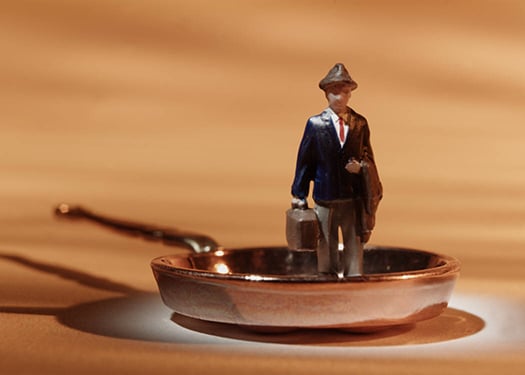What Can Eike Batista’s Story Teach Everyday Washingtonians About Financial Planning?
Brazil is a really big country generally recognized for its spectacular economic growth over the past 10 years.
In this steamy and exotic country, things happen in a big way. It is now the home of Latin America’s largest ever bankruptcy—the consequences of a huge gamble that didn’t quite pay off. The man at the center of this whirlwind is the flashy and self-assured promoter, Eike Batista.
What is interesting is that nearly everyone—even the Brazilian government—had astounding confidence in the charismatic and handsome Brazilian. There is no doubt that Mr. Batista also believed in himself and his plan. Not long ago, Forbes magazine ranked him as one of the world’s wealthiest people with an estimated $30 billion net worth.
Brazil is known as one of the BRICs, the term that economists use for Brazil, Russia, India, and China. For much of the past 5 years or so, Brazil has been a darling of global investors. Investment flowed into Brazil at a floodwater’s pace, and Mr. Batista had little trouble finding investors to provide credit, which he used abundantly to help build his empire.
Much of Brazil’s economy is based upon its natural resources such as timber, foodstuffs, oil, and gas. As demand and prices for these commodities increased around the world, Brazil’s abundance in most of those categories attracted large amounts of new investment. Consequently, as prices and demand for these commodities increased around the world, Brazil prospered even further as money from the sale of Brazilian commodities fueled a domestic consumption boom for consumer goods as more of Brazil’s once poorer citizens were able to afford cars, televisions, appliances, better housing, and nicer furniture.
Many global investors wanted a piece of the Brazilian investment action, and Mr. Batista’s companies provided ready opportunities for them. Mr. Batista started an oil company, OGX, followed by OSX1, a ship building company, followed by LLX, a logistics/shipping company, and by MMX, a mining company.
The idea was that LLX would buy oil transport ships and offshore oil drilling platforms from OSX1. OGX would then pay LLX to transport the oil in the ships that OSX1 built and sold to LLX. LLX would in turn lease offshore oil drilling platforms to OGX. LLX would also operate the ports where OGX oil and ore mined by MMX would be transported and exported.
But there was one problem, and it turned out to be a big one.
There wasn’t much extractable oil in the oilfields controlled by OGX. OGX had raised $4.1 billion in a 2008 public offering to acquire money to tap offshore oil field reserves then estimated at 10.8 billion barrels. In the ensuing years, OSX burned through much of its cash in a failed effort to develop those fields. In July 2013, OSX finally disclosed that it was incapable of extracting oil from most of the oil fields, triggering a fire sale on its shares.
The Brazilian government loaned Mr. Batista’s companies about $4.5 billion, making the Brazilian people likely losers to some extent in this disaster.
Things can happen explosively in Brazil, and Mr. Big can suddenly find himself as Mr. Nobody. While Eike Batista is a long way from a nobody, he could be on his way if his fortunes don’t improve.
Is Mr. Batista gone and forgotten? Not quite yet. Under Brazilian bankruptcy law, the debtor is granted quite a bit of leeway to propose and attempt to complete a reorganization plan. So Mr. Batista may have quite a long leash, but with new oil discoveries elsewhere, including in the U.S.A. thanks to new technologies like hydraulic fracking and applying data mining techniques to locating promising drilling sites, and with other Brazil’s other commodity prices stagnating, it may be very difficult for Mr. Batista to assemble a feasible reorganization plan.
Had the oil fields turned out better, perhaps Mr. Batista’s story would have turned out differently.
What Can We Learn From The Eike Batista Story About Financial Planning?
At first glance, the story reminds us to not borrow and spend future revenues that are not assured, particularly if the business venture involves high risk and is subject to intense competition like drilling for oil in unproven fields offshore.
Playwright William Shakespeare reminded us of irrational exuberance when he wrote of the unfortunate farmer in Macbeth, Act 2, Scene 3, “Here’s a farmer that hanged himself on the expectation of plenty.”
Another lesson is that just because we can borrow more money to get more stuff, it doesn’t always mean that we should. Mr. Batista borrowed from everyone to buy more stuff, including borrowing from his own country, the government of Brazil.
If you or someone you know bought too much stuff and now confronts a struggle with excessive debt due to poor financial planning, give us a call. A bankruptcy filing may help you out, as it may Mr. Batista. If you bought a reasonable amount of stuff, but an illness, or job loss, or some other life event has left you struggling with debt, please give us a call for a compassionate, non-judgmental and understanding consultation about your bankruptcy options.



